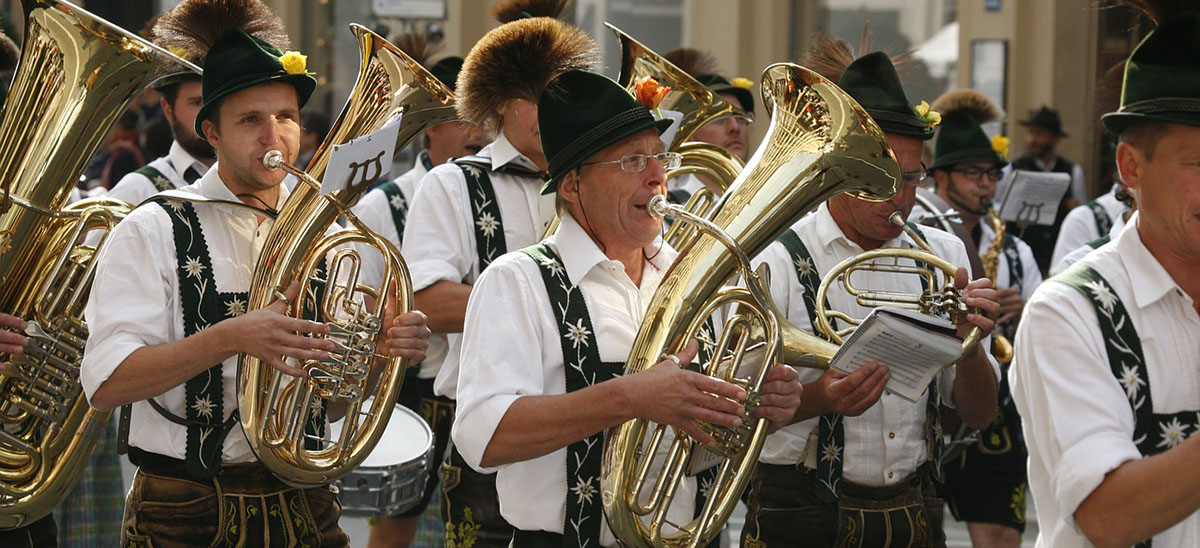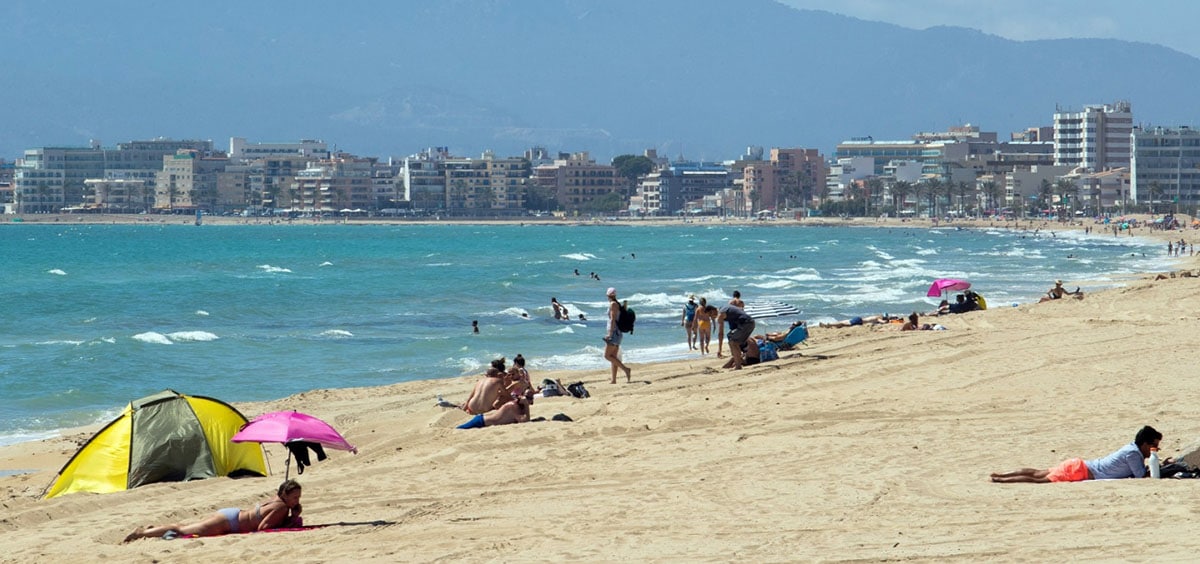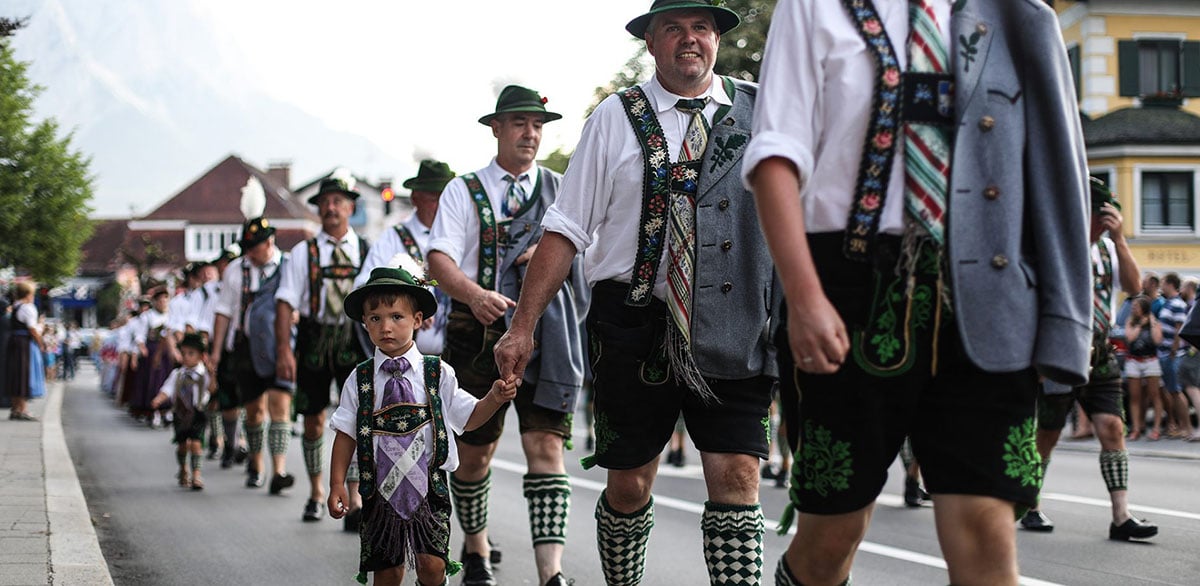
Germany is in the center of Europe and after Russia it is the country with largest number of inhabitants of the continent, with 83 million people living in its 16 states. It has really been a Phoenix of history because there is no doubt that after the war and the division of the country it has been reborn with great glory.
But how is german culture? Is it true that they are very orderly and strict people? Is there a place for good humor and sociability or not? Today's article is about the culture of Germany. Actualidad Viajes.
Germany

The history of this country is long and it has always, in one way or another, participated in the most important European event. For many, however, Germany enters the history of the Nazi regime in 1933, government that takes it to the Second World War and to be the executor of one of the most horrendous tragedies of human civilization, the Holocaust.
Later, after the war, would come the division of the territory between the German Federal Republic and the German Democratic Republic, a capitalist part and a communist part under Soviet rule. And so his life would pass until almost the end of the twentieth century when, those of us who are over 40 years old, saw on TV the The fall of the Berlin Wall and the beginning of a new era.
Today Germany stands as a world economic power, an industry and technology leader, with a good universal medical system, free public education and a good standard of living.
Culture of Germany

In Germany there is a wide range of religions, customs and traditions product of immigration, but even so, with this wealth, there are certain constants that can be noted in German behavior.
Germany is a land of thinkers, philosophers and businessmen. As a great common denominator, it can be said without fear of error that the Germans are logical and reasonable and that, therefore, also they are structured and orderly. In this sense, the main constant that one can name is the puntuality.

Like the Japanese, Germans are punctual people and that makes everything that needs to work on time to do so. I'm talking about transportation or care in public buildings. An order is followed and doing so ensures the best results. Trains are not late here, buses or airplanes are not late, and clocks always work well. The plans are followed to the letter, following that motto that reads something like "punctuality is the kindness of kings."
Therefore, if you are going to interact with a German, you better be punctual and respect the schedules that you have established. Even an unspoken rule is that it is better to arrive five minutes before the appointed time than one minute late.

On the other hand, although the Germans have a reputation for being cold the notions of family and community are well rooted. The community follows the rules and thus there are no problems of coexistence whether in a neighborhood, a town, a city or the whole country. The rules have been made to be followed.
La gender equality it is something that is thought and considered. In fact, recently Chancellor Merkel herself declared herself, after being silent for a while, a feminist. The country respects the rights of the community LGTB and for a while now the immigration policies.

Obviously, nothing is easy, there are right-wing groups in German society that do not like multiethnic but at this point in the world ... does it make any sense to talk about purity and those things? Besides being silly. 75% of the German population is urban and it is here where people are more liberal and open in these matters.
For some time now, Germany has become concerned about the caring for the environment and generating renewable energy, investing in new fuels or reducing pollution, encouraging recycling and others.
Regarding the educational system, has one of the best educational systems in the world and a work ethic that comes from the past and doesn't seem to want to loosen. Anyway, here an average of 35-40 hours a week is worked and these numbers are among the lowest in Europe without losing productivity. And that is one of the towns that take the most vacations.

We already know how much they like the sun and how they seek, for example, the beaches of Spain. Traveling outside the country is important to them to the point that the data indicates that Germans make more international trips per capita than other Europeans. Where are you going? Well, to Spain, Italy, Austria ...

What are the cultural symbols from this country? Although it is a historically Christian country, today it has a large Muslim population so the moon and the star of Islam have become part of the symbolic German culture. We can also name people who are symbolic like Marx, Kant, Beethoven or Goethe, For example.
And what about the German food culture? This revolves around the preparation of food where the meate is very popular and is almost always present in every meal of the day, along with the pan and potatoes, Sausages, cheese, pickles. Going out to dinner is popular and today restaurants of other ethnic groups are added as well, so the food is very varied.

Germans, it is known, like very much Beer so it is drunk outside and inside the house. Behind beer comes wine, brandy ... but beer is the absolute queen as you already know. But are there more German traditions we can talk about? Of course, there are first the religious festivals, both Christian and Protestant, or now Islamic, or also the more secular traditions such as the popular tea time known as coffee and cake.
At the time of the traditional costume you have to name the famous lederhosen, used by country people, closely associated with the Bavarian or Tyrolean culture. In the case of women, the typical costume is dirndl, a suit with a very colorful blouse and skirt that, obviously, are no longer used even in the countryside, but are used at beer festivals or other folk events.

Finally, these are generalities and for sure, if you travel throughout Germany, you will find variations, more open people, more closed people, beautiful mountain villages, very quiet cities, in the south, southwest and west many popular festivals that have been repeated. for centuries (for example the 30 Years War anniversary parade), colorful markets selling typical foods or truly cosmopolitan cities. There are to choose from.